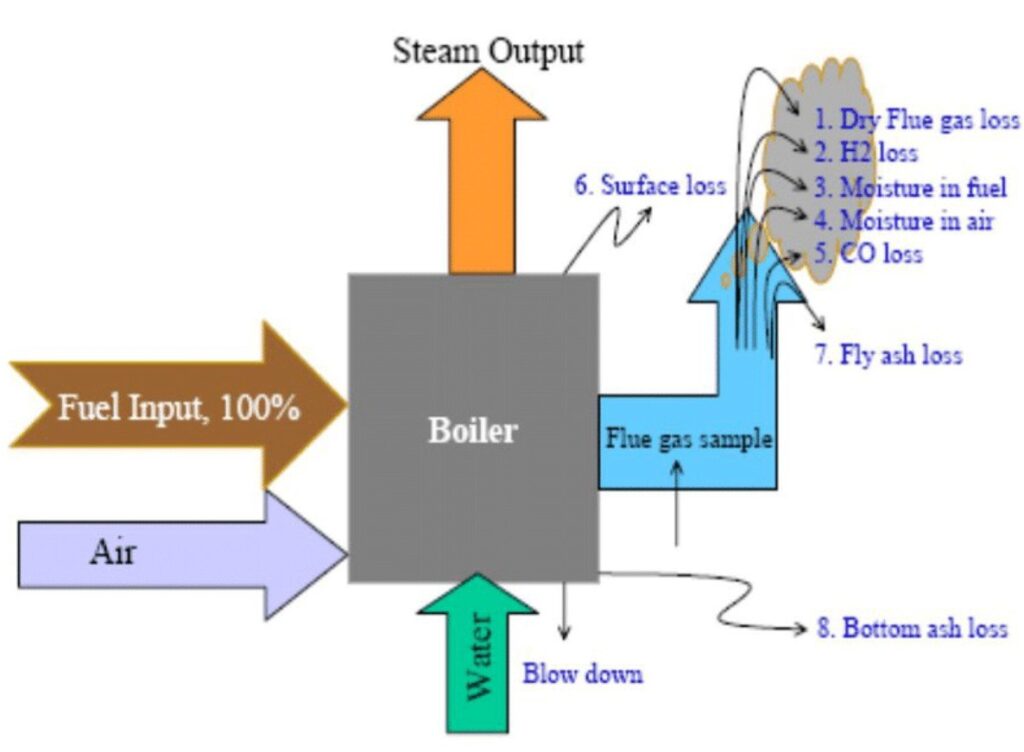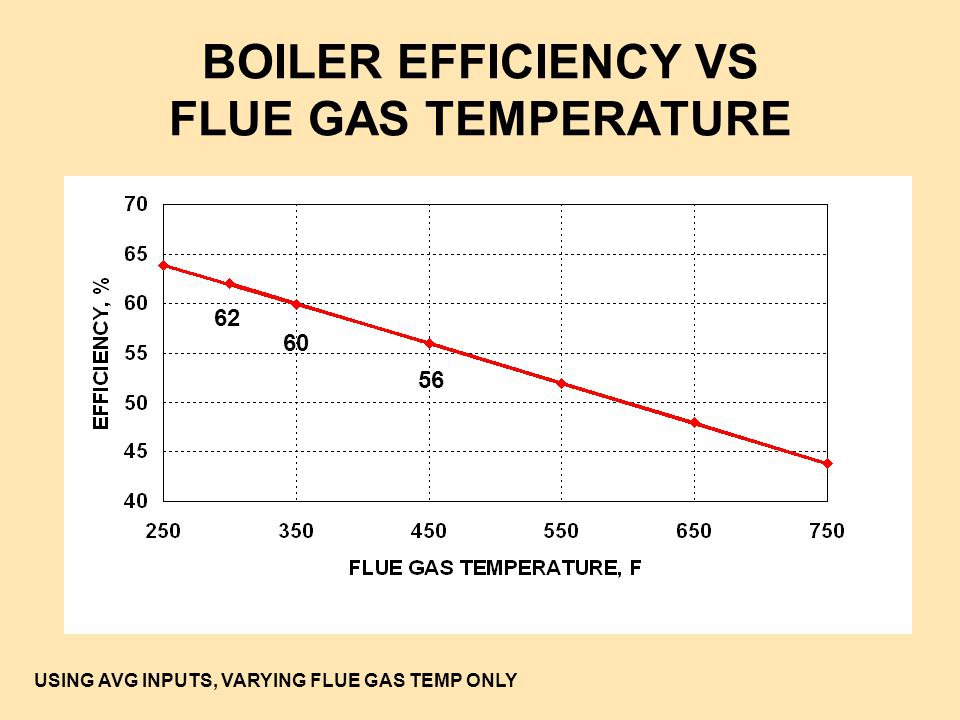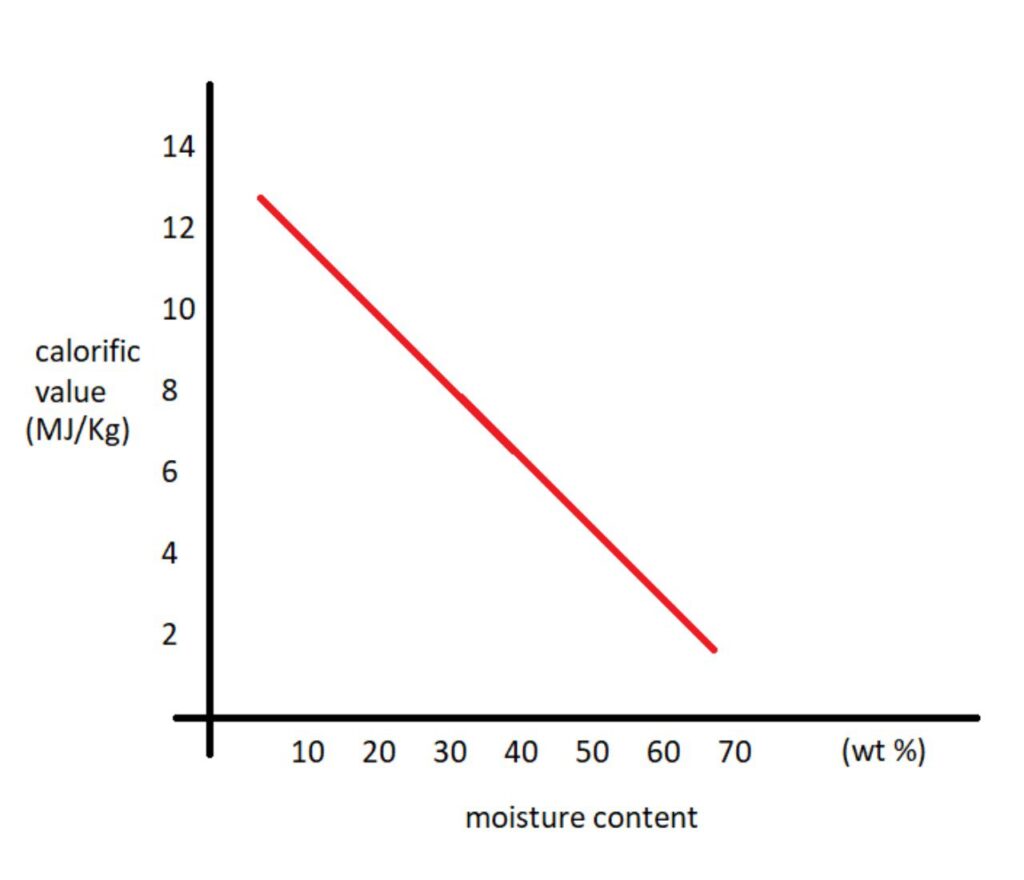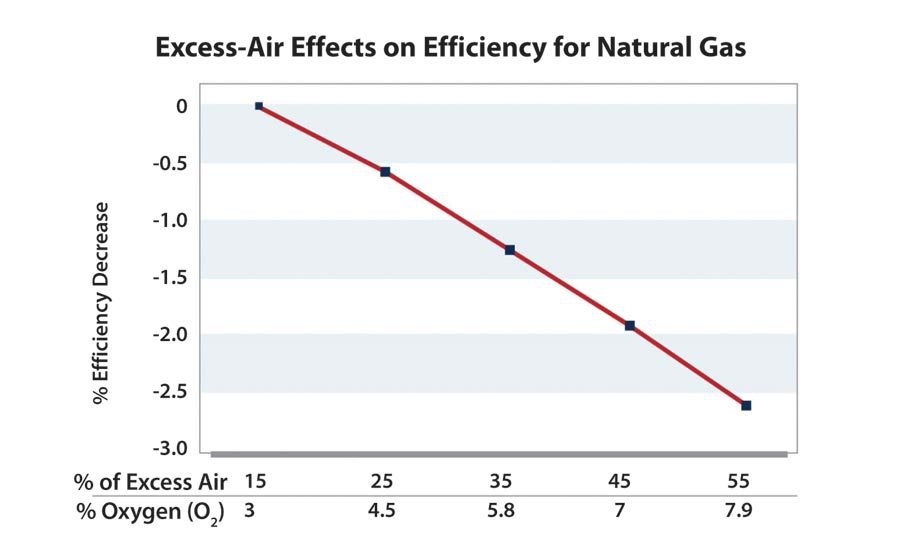Boilers are used to generate heat for a variety of purposes, including steam production, water heating, and space heating. However, boilers can also lose heat, which can lead to increased fuel consumption and operating costs.
There are a number of factors that can contribute to heat loss in boilers, including:
- Radiation and convection losses: These losses occur when heat is transferred from the boiler’s surface to the surrounding air. Radiation losses are due to the emission of infrared radiation from the boiler’s surface, while convection losses are due to the movement of air over the boiler’s surface.
- Stack temperature: The stack temperature is the temperature of the flue gases that are emitted from the boiler. The higher the stack temperature, the greater the heat loss.
- Incomplete combustion: Incomplete combustion occurs when not enough oxygen is present to fully burn the fuel. This can lead to the formation of carbon monoxide and other harmful emissions, as well as heat loss.
- Excess air: Excess air is air that is not necessary for combustion. It enters the boiler with the fuel and carries heat away with it.
- Scaling and soot: Scaling and soot can build up on the boiler’s heat transfer surfaces, reducing their efficiency.
There are a number of ways to prevent heat loss in boilers, including:
- Insulation: Insulation can help to reduce heat loss by radiation and convection. The boiler’s exterior should be insulated, as well as any piping that carries hot water or steam.
- Stack temperature control: The stack temperature can be controlled by using a stack damper or economizer. A stack damper is a device that can be used to regulate the flow of flue gases through the stack. An economizer is a heat exchanger that uses the heat from the flue gases to preheat the boiler feedwater.
- Combustion air control: Combustion air control can help to prevent incomplete combustion and excess air. This can be done by using a combustion air controller or by manually adjusting the air intake damper.
- Scaling and soot removal: Scaling and soot should be removed from the boiler’s heat transfer surfaces on a regular basis. This can be done by using a chemical cleaner or by manually scraping the surfaces.
By following these tips, you can help to prevent heat loss in your boiler and improve its efficiency. This can lead to decreased fuel consumption and operating costs, as well as a reduction in harmful emissions.
Here are some additional tips for preventing heat loss in boilers :
- Keep the boiler clean and well-maintained. This will help to ensure that the heat transfer surfaces are free of dirt, debris, and scale.
- Operate the boiler at the correct load. Operating the boiler at too high or too low a load can increase heat loss.
- Use a boiler management system. A boiler management system can help you to monitor the boiler’s performance and make adjustments to improve efficiency.
How do you calculate boiler loss?
There are 2 methods for calculating the efficiency of a boiler, one of them being the direct method and the other one is the indirect method. Direct Method is quick and ideal for routine checks, requiring only steam output, fuel input, and fuel calorific value. And the Indirect Method is detailed, identifying specific loss areas for efficiency optimization.
Direct Method (Input-Output Method)
The direct method is straightforward and widely used for its simplicity. It measures the ratio of useful heat output (steam generated) to the total energy input (fuel consumed).
Formula:
Boiler Efficiency (%)=(Useful Heat Output/ Heat Input)×100
Where:
- Useful Heat Output = Mass of steam generated per hour (kg/hr) × (Enthalpy of steam – Enthalpy of feed water) (kcal/kg)
- Heat Input = Mass of fuel consumed per hour (kg/hr) × Gross Calorific Value of fuel (kcal/kg)
Suppose:
- Steam generated = 10,000 kg/hr
- Enthalpy of steam = 540 kcal/kg
- Enthalpy of feed water = 80 kcal/kg
- Fuel consumed = 1,200 kg/hr
- Gross Calorific Value (GCV) of fuel = 4,000 kcal/kg
Useful Heat Output=10,000×(540−80)=4,600,000 kcal/hr
Heat Input=1,200×4,000=4,800,000 kcal/hr
Boiler Efficiency=(4,600,000/ 4,800,000)×100=95.83%
This means 95.83% of the fuel energy is converted into useful steam, while the rest is lost.
Indirect Method (Heat Loss Method)
The indirect method calculates efficiency by accounting for all measurable losses in the boiler and subtracting their sum from 100%. This approach is more comprehensive and helps identify specific areas of improvement.
Formula:
Boiler Efficiency (%)=100−(Sum of all heat losses %)
For Example:
Suppose the measured losses are:
- Dry flue gas loss: 8%
- Hydrogen loss: 3%
- Moisture in fuel: 2%
- Unburnt carbon: 1%
- Radiation/convection: 2%
Total losses=8+3+2+1+2=16%
Boiler Efficiency=100−16=84%
This method provides a detailed breakdown, enabling targeted efficiency improvements.
Boiler Losses That Eat Away Your Profits
Every boiler operator’s or user’s main goal is to conserve fuel and utilize as much heat energy as possible. We are all aware that there is no complete conversion of fuel energy to thermal energy. The process of heat transfer and steam generation results in numerous losses. Losses may be caused by the moisture content in the fuel, the high temperature of the stack gases, the material’s low conductivity, or impurities in the feed water. Every boiler-related loss directly affects the amount of fuel consumed, raising operating costs. In order to optimize the operation of the boiler, it is also crucial for a boiler operator to be aware of the losses. The major issue for the industry is to reduce losses as much as possible. Loss minimization and loss reduction are more difficult when there is a lack of knowledge. It causes them to continually lose money.

Boiler Heat losses
Every user of a boiler should be aware of some of the significant losses linked to boiler operation, which include the following:
Loss due to dry flue gas
The temperature of the flue gas is one of the main sources of energy losses during boiler operation. Flue gases carry heat with them and release it into the environment because their temperature is higher than the ambient temperature. The loss will be greater the higher the flue gas temperature.
Although it is not practical to have flue gas temperatures that are identical to their surroundings, they should nonetheless be kept as low as feasible. It is defined as the difference between the enthalpy
of flue gases emitted out of the boiler and the enthalpy of flue gases cooled down to the ambient temperature per amount of heat produced by 1 kg of fuel.


Loss due to moisture in fuel
Coal, briquettes, and husk are examples of solid fuel that are particularly effective at absorbing moisture from the air. The fuel’s calorific value and combustion efficiency are both decreased by this moisture. When this moist fuel is burned in the furnace, water vapor is produced in the flue gases, which lowers the stack temperature.
Loss due to excess air
Despite the fact that air is necessary for complete fuel combustion, utilizing more air than is required could be costly since excess air is cooler than required and absorbs heat from the fuel flame. It further causes the heat transfer to the boiler to be reduced. This air, along with waste flue gases, carries this heat away. As a result, boiler systems waste energy when there is too much air. For every 10% reduction in excess air, boiler efficiency increases by 0.5%.

Heat loss due to incomplete combustion
The supply of air provides the oxygen needed for continuous and complete fuel burning. In total combustion, carbon and oxygen react to form carbon dioxide, while hydrogen and carbon dioxide react to form water. When there is insufficient air, carbon is oxidized, producing CO instead, which produces less heat and results in incomplete combustion.
Bottom ash loss
Bottom Ash Loss can be determined using the temperature and carbon content of the ash and is dependent on the properties of the coal. The carbon in the ash is what truly matters, not its temperature, which only has a modest impact on ash loss. The related bottom ash energy loss at 350 oC, assuming a 22 percent carbon content in the ash, will typically be as follows:
Carbon energy loss equals 3,6%
Ash temperature loss is equal to 0.18%.
4,78% of the bottom was lost to ash.
From the aforementioned reasons, it is obvious that these losses might have a negative impact on the operation of the boiler and the organization’s earnings. The reduction of these losses is crucial.
Therefore, whether you are a boiler operator, user, or planning to purchase a new boiler but are unsure on how to choose the boiler, feel free to contact us. A variety of energy-efficient boilers are offered by THERMODYNE ENGINEERING SYSTEMS.
Boiler Heat Losses FAQ
The main causes of heat losses in a boiler are:
Flue gas losses: The flue gas is the hot exhaust gas that is produced by the combustion process. This gas contains a significant amount of heat energy, which is lost as it is vented to the atmosphere.
Radiation losses: The boiler itself will radiate heat energy to the surrounding environment. This is a function of the boiler’s surface temperature and the ambient temperature.
Convection losses: The air that circulates around the boiler will also carry away heat energy. This is a function of the air temperature and the boiler’s surface temperature.
Boiler jacket losses: If the boiler has a jacket, this can also lose heat energy to the surrounding environment.
High boiler losses can lead to a number of problems, including:
Increased energy costs: Boilers with high heat losses will require more fuel to operate, which can lead to higher energy bills.
Reduced efficiency: Boilers with high heat losses are less efficient, which means that they produce less heat for the amount of fuel that they use.
Damage to the boiler: High heat losses can also damage the boiler, as the boiler will be subjected to more wear and tear.
Insulating the boiler: This will help to reduce heat loss through conduction and radiation.
Sealing any leaks: Any leaks in the boiler jacket or other components will allow heat to escape.
Maintaining the boiler: Regular maintenance will help to ensure that the boiler is operating efficiently and that there are no leaks.
Using a high-efficiency boiler: Boilers with higher efficiency ratings will produce more heat for the amount of fuel that they use, which can help to reduce heat losses.
Flue gas losses are the heat losses that occur as the flue gas is vented to the atmosphere. Radiation losses are the heat losses that occur as the boiler itself radiates heat energy to the surrounding environment.
Boiler jacket losses are the heat losses that occur through the boiler jacket. Convection losses are the heat losses that occur as the air that circulates around the boiler carries away heat energy.
The average boiler efficiency is around 80%. However, there are boilers that are much more efficient, with some models reaching efficiencies of up to 98%.
The frequency with which you should have your boiler serviced will depend on the age and condition of your boiler. However, it is generally recommended to have your boiler serviced once a year.
There are a number of signs that your boiler may need to be serviced, including:
The boiler is not producing enough heat.
The boiler is making strange noises.
The boiler is leaking.
The boiler is not operating efficiently.
There are a number of benefits to having a high-efficiency boiler, including: * Reduced energy costs: High-efficiency boilers produce more heat for the amount of fuel that they use, which can lead to lower energy bills. * Reduced environmental impact: High-efficiency boilers produce less emissions, which can help to reduce the environmental impact of your heating system. * Increased comfort: High-efficiency boilers can provide more consistent and reliable heat, which can lead to increased comfort in your home.





